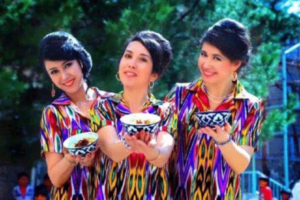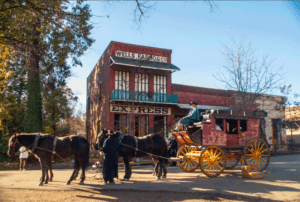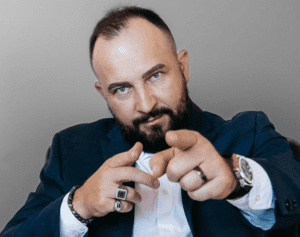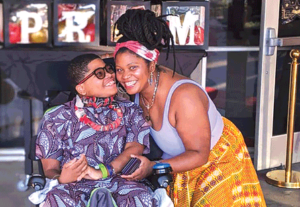here are more than 50,000 professions in the world. Find out interesting facts about different trades as people share curious random facts about their jobs.
Hobby: Breeding, Raising & Training Assistance Dogs for People with Disabilities. (all disabilities rather than blind) for the organization Canine Companions for Independence (CCI)
Featured Guest: Irina Green|Electrical Engineer
How did your hobby of training service dogs begin?
Many years ago, I had a friend of a friend who was raising and training assistance dogs for Canine Companions for Independence (CCI). I asked him to tell me about it and decided that I wanted to do the same. So, I applied to raise and train my first puppy! That was in 2005, and I since have raised 9 service dogs. In 2010, one of the dogs whom I trained, was selected to be a Breeder-Dog for CCI. They select the top two percent of service dogs for breeding, and they selected mine! My husband and I decided to become her Breeder-Caretakers, as they call it. Breeder-Caretakers provide homes for the Breeder-Dogs, assist with whelping (labor and delivery of puppies), and take care of the puppies for the first seven-and-a-half weeks of their life. So far, we have had eleven litters of puppies born in our house from three breeder-dogs, 73 puppies in all. They went onto training to become service dogs for people with disabilities, some became service dogs, and some are still in training.

Can all dogs be trained to help people with disabilities?
I don’t think that you can train any dog to be a service dog. The dogs who we raise and train, are specifically bred for this program. This breeding program exists since 1975, and only the best dogs in the program are selected for breeding. The breeder-dogs are selected for their temperament, behavior and for their abilities to learn. Therefore, the puppies are already born with the qualities that are needed to be a service dog. Their training starts with specific exercises when they are only several days old. Also, a lot depends on the dog’s breed. Our dogs are yellow or black Labrador Retrievers, Golden Retrievers or crosses between these breeds. These breeds are most suitable to be service dogs for people with disabilities because they can retrieve and bring things (this is why they are called retrievers), they are hardworking, and they want to please you. Also, they are the right size: large enough to pull a wheelchair or open doors, but not too big to take too much space.
What are the main skills should be trained dog that will help people with disabilities?
First, the dog has to be very well behaved and to feel comfortable in any situation and environment. If the owner is deaf, his service dog alerts him to different sounds. If the owner doesn’t have arms, the dog carries his bag and other things for him. In stores, the dog gets his bank card from his wallet, gives it to a cashier, then takes the card and the receipt and puts them back in his wallet. So, what the dogs have to be trained to do depends on her future owner’s needs.
Is it hard to say goodbye to the dog that you raised and trained?
We have each dog approximately for a year and a half, and this dog is always with us. The dog who I train, goes to work with me and everywhere where I go, travels with me and they are with me, as they say, 24/7. Of course, you get attached. But then, you know that this dog has a much bigger and more important purpose in life than to be your pet. They will change someone’s life and will do that in part thanks to you. This makes you very proud when your dog graduates and goes on to help others and enhances their lives.
Is it hard to say goodbye to the dog that you raised and trained?
We have each dog approximately for a year and a half, and this dog is always with us. The dog who I train, goes to work with me and everywhere where I go, travels with me and they are with me, as they say, 24/7. Of course, you get attached. But then, you know that this dog has a much bigger and more important purpose in life than to be your pet. They will change someone’s life and will do that in part thanks to you. This makes you very proud when your dog graduates and goes on to help others and enhances their lives.

How has your hobby changed you?
I would say that it not only taught me how to train dogs, it has indeed changed me. I became more outgoing because when I am with my dog, people often come up to me and start talking. I made many new friends who have the same hobby. I became more compassionate, more understanding and more patient with different kind of people. I started to appreciate life and my health much more when I was meeting people who are getting our dogs. I realize what a blessing it is to be alive and healthy when there are many others who cannot walk, or talk, or hear, or who live in constant pain.
Are there dangerous dog breeds or is it a myth?
I am not an expert here, but I believe that there are no bad dogs, only bad owners.
What is the need for specially trained dogs?
I can tell that the demand for service dogs for people with disabilities is very high, and there is definitely not enough specially trained dogs. People wait for the dogs whom we raise and train for at least two years, some even longer. Many applications for service dogs are denied because there are not enough dogs. Therefore, we need more volunteers who would do what I am doing: raise puppies and train them, and also participate in taking care of the breeder-dogs and newborn puppies.
What would you like to change in the field where you are volunteering?
We need more volunteers and more professional service dog trainers. To be a professional dog trainer is a very skilled and difficult task; those who do such work are highly educated and very talented. At the same time, their pay is low, and because of that, not many people want to go into this profession. People with disabilities get our dogs for free, the organization doesn’t have any funding, only private donations. While the cost of each our service dog is estimated from $25,000 to $50,000, none of the dog recipients are ever charged even a penny. Thus, the organization needs more money and more donors so that they could have more dog trainers and more service dogs.
The most touching moment in your practice?
I think that the most touching moments are when your dog graduates and you go on stage at the graduation ceremony and give your dog’s leash to their new owner, a person whose life your dog will forever change. Then you see this person’s face and how they look at your dog, with such happiness, and pride and hope. This is especially moving when this person is a child. Your dog runs to their new person, to their new life, with the wagging tail, and doesn’t even look back at you.


























